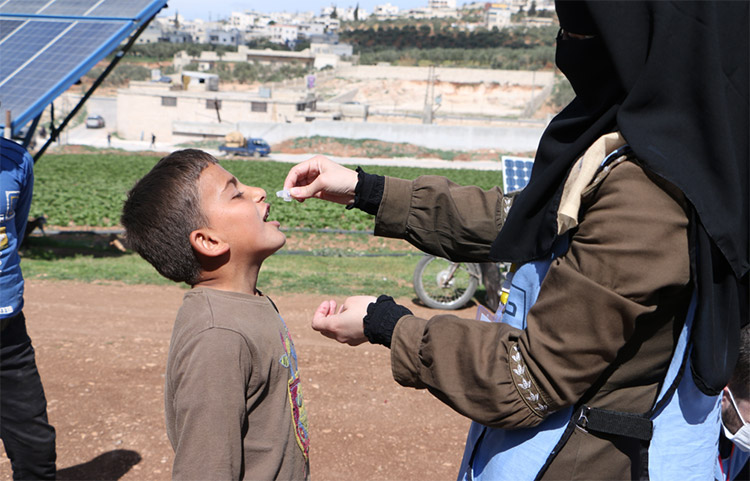By Bernhard Schell
CAIRO | AMMAN, 8 March 2023 (IDN) — The devastating earthquakes that struck southern Turkey and northern Syria on 6 February caused over 4540 deaths and nearly 9000 injuries in northwest Syria.
As the Syria cholera situation report points out, around 90 000 Syrians have been displaced in the northwest and many have found refuge in overcrowded camps and collective reception centres.
The catastrophe has disrupted access to safe water, sanitation, and hygiene, exposing the population to an increased risk of water-borne diseases, including cholera.
In view of this, the World Health Organization (WHO) and the United Nations Children’s Fund (UNICEF), in coordination with health authorities, the Syria Immunization Group (SIG), and the Global Alliance for Vaccines (GAVI), have launched a cholera vaccination campaign in earthquake-hit areas of northwest Syria.
1400 teams of health workers and community volunteers will implement the ten-day campaign, which will resort to a house-to-house strategy, and reach displaced people living in camps, markets, and school sites.
During the campaign, 1.7 million doses of cholera vaccine will be used to protect Syrians above one year of age, especially those living in the areas most severely impacted by the earthquake and at highest risk of cholera, including Sarmada, Maaret Tamsrin, Dana, and Atmeh districts in Idleb, and in A’zaz district in northern Aleppo.
Dr Richard Brennan, Regional Emergency Director for WHO’s Regional Office for the Eastern Mediterranean, is warning against the increase of water-borne diseases for over 2.1 million Syrians living in the northwest of the country, with the risk increasing significantly in the aftermath of the devastating earthquake, especially in overcrowded camps and collective centres.
“WHO and partners have to act now to avoid further illness and death. As the cholera vaccines are orally administered, it is crucial to ensure that targeted populations are reached before the beginning of Holy month of Ramadan, as most adults will be fasting during this period,” says Dr Brennan.
UNICEF Deputy Regional Director of programmes for the Middle East and North Africa, Maddalena Bertolotti said: “After years of conflict, and two catastrophic earthquakes, the dangers that unsanitary conditions and unsafe water pose to children may seem inconsequential, but we know that if waterborne diseases take hold, the effects can be disastrous.”
This vaccination campaign is vital as it will provide much needed protection for children and their families and will help curb the spread of the disease, which can put millions of people at risk, Ms Bertolotti added.
Since the cholera outbreak was first declared in Syria on 10 September 2022, over 50 thousand suspected cases have been reported in both Idlib and Aleppo governorates, of which 18% of suspected cases were from internally displaced persons (IDP) camps.
In sixth week of 2023, the week of the earthquake, reported cases declined by 63%, reflecting the drop in presentations and reporting. Since then, surveillance has resumed and in week 8/2023 1,784 new cases were reported.
There is still an urgent need to ramp up surveillance and response for epidemic prone diseases after the earthquake, with a particular focus on the spring season that will see a shift in the circulating pathogens, noted WHO.
UNICEF continues to lead on vaccine procurement, cold chain and vaccine management for the safety of the vaccine. UNICEF co-leads in the planning and implementation of the social mobilization activities for the Oral Cholera Vaccine (OCV) campaign to create awareness on the importance of taking the vaccine to keep the families safe and healthy from cholera disease
WHO continues to lead the operational cholera response, establishing a cholera response taskforce, and coordinating the response across the various pillars, including surveillance and laboratories, case management, Infection Prevention and Control (IPC), supply chain, Risk Communication and Community Engagement (RCCE) and OCV. [IDN-InDepthNews]
Image source: WHO’s Regional Office for the Eastern Mediterranean.
IDN is the flagship agency of the Non-profit International Press Syndicate.
Visit us on Facebook and Twitter.
We believe in the free flow of information. Republish our articles for free, online or in print, under Creative Commons Attribution 4.0 International, except for articles that are republished with permission.

